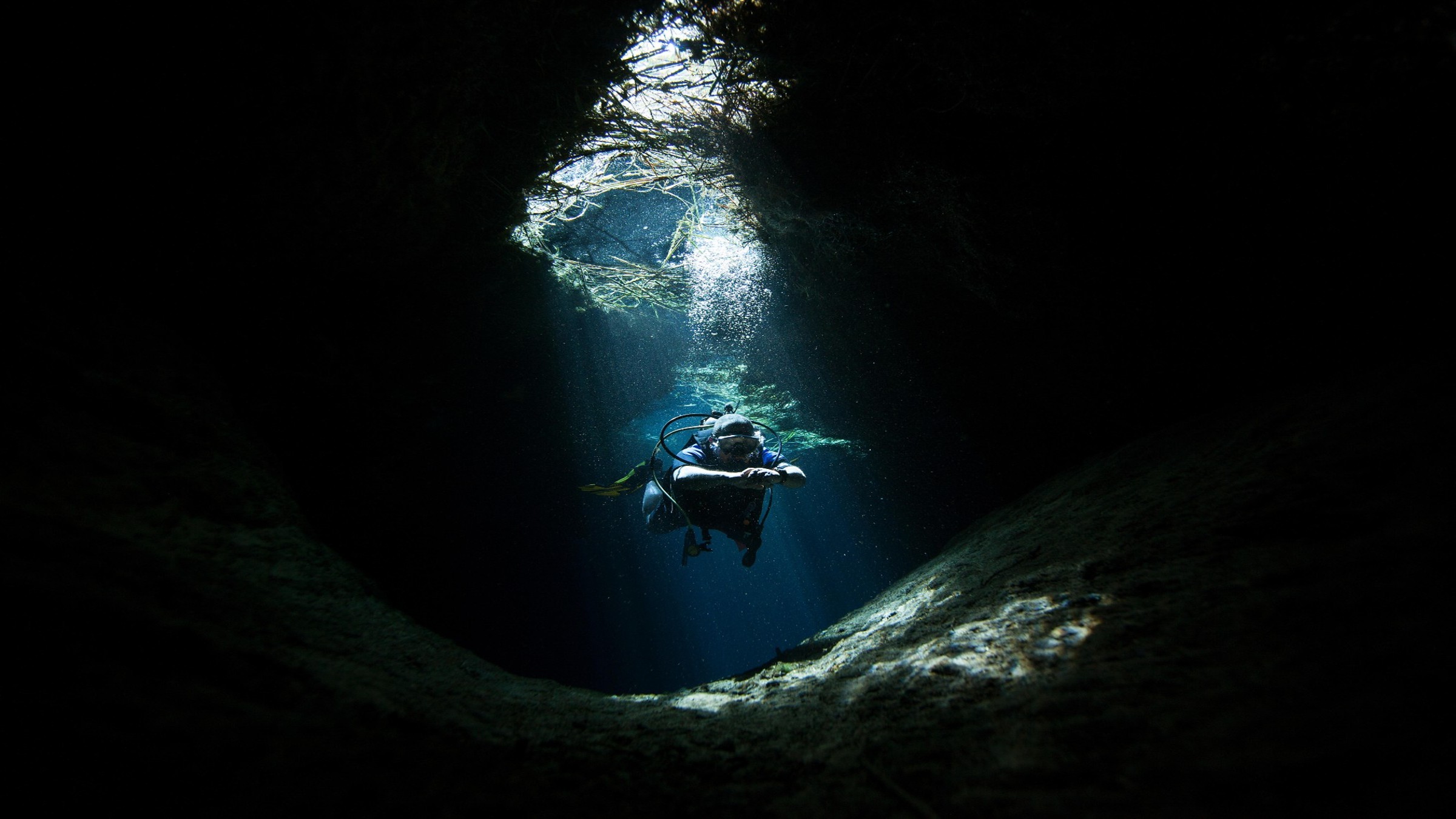Fluid leaked from scuba diver's blood vessels after 100-foot cave dive in rare medical case
This extreme form of inflammatory response due to diving has rarely been reported worldwide, an attending doctor said.

In an extremely rare medical case, a scuba diver who descended deep into an underwater cave developed a deadly blood syndrome in which fluid leaked out of his blood vessels.
The syndrome was a strange complication of decompression sickness, or "the bends," in which air bubbles form in the blood as people go from high pressure at depth to low pressure at the surface. The condition usually causes joint pain, dizziness and extreme fatigue. It can be fatal, but most people respond to treatment, which usually involves being placed in a hyperbaric chamber under high pressure and oxygen flow.
In the new case, described July 5 in the journal BMJ Case Reports, the diver developed systemic capillary leak syndrome (SCLS), but survived thanks to prompt treatment.
The patient, a man in his 40s, presented at the emergency room with "worsening shortness of breath" following a deep cave dive to depths of "approximately [100-foot] 30 meter seawater" for "roughly 40 minutes" the day before, the report noted.
Related: Free divers' heart rates can drop as low as 11 beats per minute
Dr. Ali Ataya, an associate professor of medicine at the University of Florida and an expert on capillary leak syndrome, helped treat the man and was able to recognize several symptoms of SCLS.
SCLS is a severe form of inflammation that causes all your blood vessels to leak a protein that normally keeps fluid inside. In response, fluid flows out of the cells, Ataya told Live Science.
Sign up for the Live Science daily newsletter now
Get the world’s most fascinating discoveries delivered straight to your inbox.
So what may have caused this rare complication?
"In the man's case, we think that the air bubbles that form from the ascent during decompression result in a pro-inflammatory cascade in the blood vessels which causes them to become more permeable, resulting in the leakage of protein and fluid that leads to SCLS," Ataya said.
SCLS is often deadly, but the fact that the team quickly diagnosed the problem, resuscitated the man and treated the inflammatory cascade may explain why the man recovered enough to leave the hospital in "just under a week," Ataya said.
Dr. Jeffrey Cooper, a professor in the department of emergency medicine at the University of Nebraska Medical Center told Live Science that the case may raise general awareness of the potential complications associated with deep diving.
"If someone came into the emergency department like this man did, I might have considered decompression sickness but as the presentation was so unusual, I may have been misled and thought something else was going on, like sepsis or an allergy," he told Live Science.
Ataya emphasized the need for physicians to be aware of this potential complication.
"What we've learned from this case is that when someone presents in shock with an unclear cause that we should always consider SCLS as part of the diagnosis," he said.
But divers shouldn't panic. Millions of people dive safely every year without getting this syndrome, he added.

Emily is a health news writer based in London, United Kingdom. She holds a bachelor's degree in biology from Durham University and a master's degree in clinical and therapeutic neuroscience from Oxford University. She has worked in science communication, medical writing and as a local news reporter while undertaking NCTJ journalism training with News Associates. In 2018, she was named one of MHP Communications' 30 journalists to watch under 30. (emily.cooke@futurenet.com)









